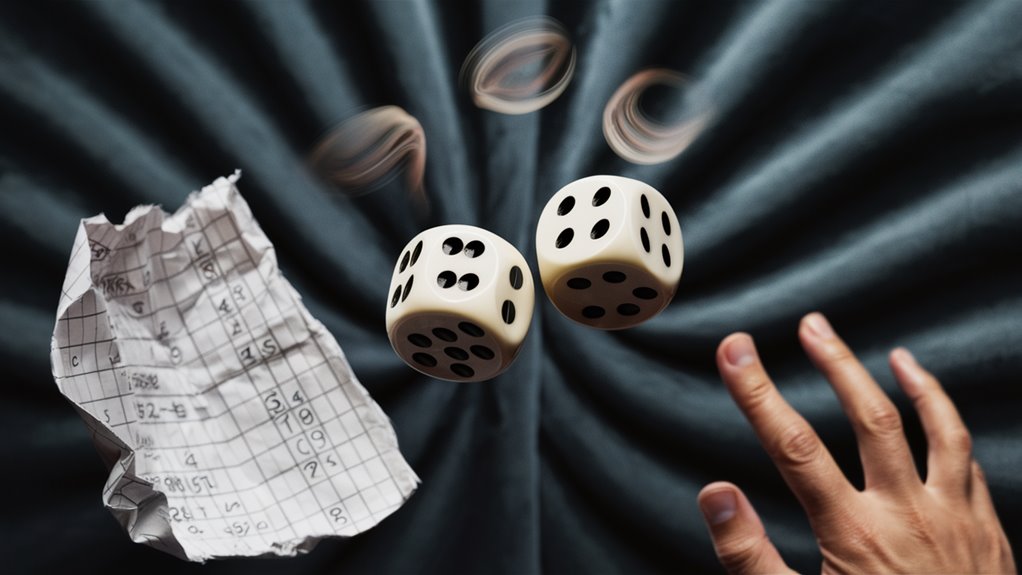
How RNG Myths Impact Player Trust

Random number generators (RNGs) are the core of many games and betting sites. Yet lasting myths about RNG tampering still guide how players act and how much they trust these systems. While modern RNGs use complex math making cheating almost impossible, many gamers still hold wrong beliefs.
Why Players Think Wrongly About RNGs
Players often see fake patterns in RNGs, thinking they can change results by when or how they act. This wrong belief promotes myths in gaming circles, hurtful for each gamer, and causes broad doubts across the gaming world.
How Beliefs Change Player Actions and Trust
Studies show that thinking RNGs can be cheated links to:
- Less play time
- Less money spent in-game https://maxpixels.net/
- More doubts about game makers
- New playing styles based on so-called “lucky” times
Game Industry Steps and Being Open
The game world has gotten more open about RNG. From 2016 to 2023, companies sharing info grew by 47%. Developers now often share:
- Exact chance rates
- How the systems are built
- Checks from other groups
- Regular checkup reports
Clear Proofs Against Cheating Theories
Math proofs and lot of tests show that current RNGs really are random. They use:
- Secure tech steps
- Many checks
- Watching in real time
- Checks from outsiders
Knowing these safety steps is key to regaining player trust and clearing up lasting myths about RNG cheating.
Known RNG Myths in Gaming
Typical RNG Myths in Gaming: Fact vs. Belief
Learning How RNG Works in Games
RNGs are vital to today’s gaming setups, but many wrong ideas about how RNGs work keep going in the gaming world.
These myths often mix up gamers about how games really figure out what happens and what chances are.
Clearing Up Popular RNG Cheating Myths
The Rapid Button Myth
Trying to cheat RNGs by certain moves or ways remains a big wrong belief.
Many gamers think that fast button hitting, using certain timings, or doing specific moves can change random results.
Current RNGs use advanced math meant to block any such cheating tries.
The Memory Trick Myth
A big wrong idea is that RNGs ‘remember’ and give ‘make-up’ chances.
While some games have pity systems or chance changes, real RNGs are random every time. No outcome is because of the last one, so you can’t guess patterns.
How New RNGs Really Work
New games run on PRNGs (nearly random number generators) with tough math that ensures really unforeseeable results.
The math behind this keeps randomness all through playing times.
The ‘Due Odds’ Mistake
Many players wrongly believe in timing chances — the idea that certain results are ‘due’ after different ones before.
This gambler’s mistake misses how true randomness works, where every new time is separate from past ones.
How RNG Ideas Touch Play
Getting the RNG rules can help players see game results more clearly, leading to better play habits.
New game designs put in fair RNG setups that keep fun and fair play without letting any cheats or tricks.
The Mind Set Behind Player Rituals
The Mind Set Behind Player Rituals in Gaming
Knowing RNG and Player Acts
RNG in games now rests on tough math against tampering.
Yet players often keep and start ritual beliefs about steering random outcomes.
These acts come from main mind tricks, all about wanting to see control where there is none and trying to see patterns in pure chance.
How Player Rituals Start
Rituals among players most start when a player does certain actions, like hitting buttons in a way or following steps, and gets the wanted result.
This makes the brain see these as linked, creating a strong mind loop where only wins are recalled and losses are missed.
Why We Do Game Rituals
These gaming rituals are key in easing the feel of no control and dealing with unknowns.
Even players who get the RNG rules might still follow these practices.
The hold of these game myths shows how we make stories around chance, just as ancient groups made tales for nature’s ways. This happens in all sorts of gaming groups and game types.
How Rituals Change How We Play
- Handling risk with ritual acts
- Keeping calm in intense game times
- Joining with others in shared game beliefs
- More fun with personal game rituals
How Believing in RNG Shifts Spending
How RNG Beliefs Touch How Players Spend

Rituals in Game Money Plans
Silly beliefs about RNG really shape how players use money in games with random rewards.
Players who buy into ideas like ‘pity timers’ or ‘lucky runs’ often time their buys with times they see as having better RNG chances.
Data shows more spending in times players see as having better odds.
How We Buy in Cycles in Gacha Games
Players in gacha games, using loot boxes, show clear buy cycles based on RNG thoughts. Key times for buying include:
- After servers reset
- After a line of bad tries
- During special events or sales
- After saving up certain items
How Minds Shift Spending Choices
The link between RNG rituals and how we spend creates habits that support each other.
When random outcomes at times match what players think, it makes their wrong beliefs stronger, likely causing them to:
- Buy more often in ‘lucky’ times
- Stick to set spending plans
- Spend more overall
- Not want to learn the real odds
These spending acts show how key it is for game places to be open about chances and push for safe gaming.
Talking Openly and RNG in Gaming
Being Open and RNG Talks in Gaming
RNG Being Open Now
RNG openness has really changed in the gaming world since gacha and loot box started.
Rules, especially in places like China and Japan, pushed a big shift from hard-to-see chance systems to full show of drop rates.
Studies show a 47% growth in games showing RNG workings from 2016 to 2023.
Being Open Now
Show of Real-Time Chances
Top makers now use live chance systems that give updates as players use RNG setups. This gives a never-before-seen look into drop rates and reward math.
Talking Tech
Game studios now tell all about theirrandom number math. This tech openness helps players get how game systems work.
Checking From Others
Regular checks by others is normal now, with outside groups making sure systems are fair and follow RNG rules. This extra check raises player trust and system workings.
Keeping Players Through Open Talks
Top companies like Grinding Gear Games and Digital Extremes show how well being open about RNG works through big blog posts and talks with the player community.
Data shows a 23% better hold on players among makers who keep talking about RNG openly. This shows being open is key in staying ahead and building trust with gamers.
Good Ways to Talk About RNG
- Clear talks about chance
- Updates often
- Talking to players
- Being open about tech
- Checks from others
These moves have changed RNG openness from just a must-do rule to a needed part of keeping players happy and playing long-term.
Testing RNG Claims
Testing RNG Claims: Full Guide
Knowing How to Test RNG
Random number making (RNG) is key in games, but checking true randomness needs deep science tests.
Players trying to check RNG claims must know basic stats rules and right ways to test to keep from wrong results.
What Often Goes Wrong in Testing
When Collecting Data Goes Bad
Choosing what to record can really hurt test truth when players only remember big events and skip normal ones. This picking makes data sets that don’t really show true chances.
Getting Stats Wrong
Many testers get chance ideas wrong, looking for perfect even chances in short tests. True random setups often show lines or patterns, leading to wrong thoughts on RNG cheating.
Seeing Patterns Wrong
Seeing patterns after the fact is a common testing mistake. Players often give meaning to random lines, thinking they show system cheating.
Good Ways to Test RNG
Using Science Right
Using right stats steps needs:
- Full data showing
- Clear base idea making
- Using Chi-square tests and fitting stat checks
- At least a few thousand tries needed
Tools That Help
Tools for collecting data work better than writing by hand by:
- Cutting human mistakes
- Stopping wrong beliefs
- Making sure all data is caught
- Keeping record ways the same
Checking Stats Right
Right randomness checks ask for:
- Big-scale samples
- Deep data checks
- Stat importance tests
- Using systems right
Building Trust Through Game Design
Building Trust Through Game Design: RNG Systems
Being Clear in Random Number Making
Game makers must put in strong trust-building parts in their random number setups to keep player trust. Three key parts push successful RNG use:
- Clear seed making
- Clear chance shows Understanding the Basics of Sports Betting
- Ways to check what results
Seeds and Being Open
Best game making ways use open RNG seeds through easy UI parts and player-driven inputs.
XCOM 2 and Minecraft are good examples with seed numbers shown right to users. Clear percent chance numbers, more than unsure words, greatly lift player trust in random results.
Systems for Checking and Player Trust
Trust-building parts work best through ways to check the outcomes. Good uses include:
- Fight records in RPGs
- Card pull pasts in digital card games
- Detailed event checks with exact math
- Replay options showing exact RNG results
These checkable systems make clear records that cut out cheating worries and build lasting trust in RNG mechanics.
With wide tracking options, players feel sure in the justness and realness of game outcomes.



